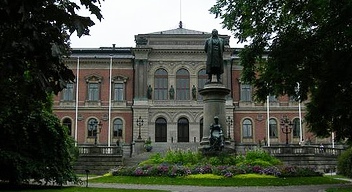|
| Education System in Sweden |
Primary Education
The Swedes take the education of their children seriously as is evidenced by their success rate in international learning competitions. Homeschooling is forbidden (except in very unusual circumstances) but children may enter pre-school from as young as one year old. At age 7 they enroll at primary school for a mandatory 9 year period, where curriculum choices during the first 6 years are limited through strict governmental control.
Middle Education
The final three years at primary school equate with middle school in that some subject choice is permitted depending on the school concerned. For instance, brighter students may opt for advanced maths, and more creative ones art or music. Sciences may be available too, while practical courses such as carpentry or electronics are also sometimes offered. All pupils must, however, at least receive a smattering of all.Secondary Education
Secondary schooling lasting 3 years is not compulsory, although it is almost universally attended. Two broad main streams are offered (social sciences and natural sciences) which are further split into focus streams so that in all a range of 18 options exists. Six of these serve as entry levels towards further academic education, while the remaining 12 are more vocationally orientated. None deprive a young person of the right to go on to university though.
Vocational Education
Vocational training in Sweden is going through a process of adopting European norms and standards, while at the same time adapting to economic realities sweeping the world. That, together with a preoccupation with foreign languages during school will introduce an era of greater mobility for talented technicians across the nation’s borders.
Tertiary Education
 Following secondary school those students who followed academic programs may apply to go to university directly, while their vocationally-minded peers may need to first complete two bridging years at college. Swedish universities offer a combination of general academic degrees, and technical degrees for example in engineering, medicine and law. This is all still free of charge for Swedish, European and Swiss citizens.
Following secondary school those students who followed academic programs may apply to go to university directly, while their vocationally-minded peers may need to first complete two bridging years at college. Swedish universities offer a combination of general academic degrees, and technical degrees for example in engineering, medicine and law. This is all still free of charge for Swedish, European and Swiss citizens.
Uppsala University is the nation’s oldest having been established in 1477. It compares consistently in international rankings and the Swedes at least rank it among Europe’s best.
